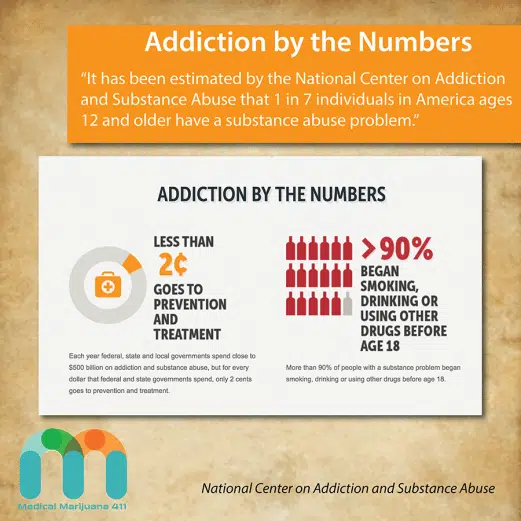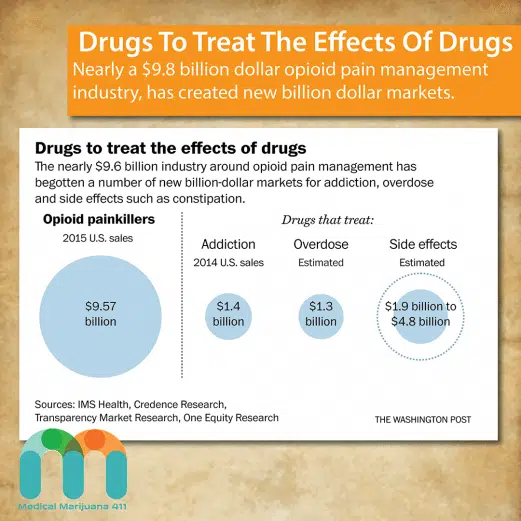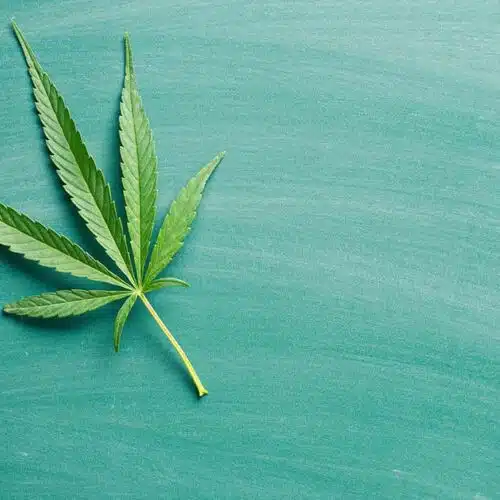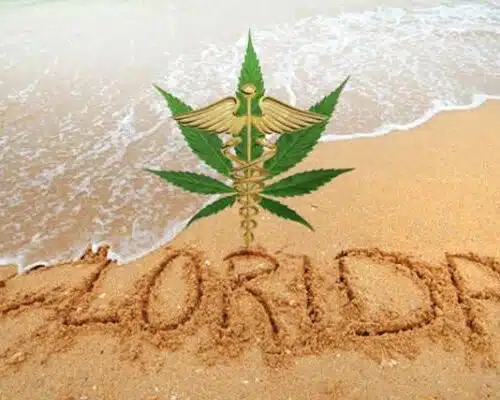THE SET-UP – The War on Drugs
I would say there endeth the lesson except the War on Drugs has proven this axiom warrants repetition. What is it in America that stimulates such addictive behavior? Why, we’ve even become ‘addicted’ to a failed War on Drugs policy?
INSANITY: Doing the same thing over and over again and expecting different results. Albert Einstein
It has been estimated by the National Center on Addiction and Substance Abuse that 1 in 7 individuals in America ages 12 and older have a substance abuse problem. That’s 1 in 7, and it is likely conservative! Needless to say, it does not take into account other addictive behaviors that often correlate to substance use, such as: gambling, sex, eating disorders, and our obsession with exercise.
Recently, there has been increasing attention paid to the addiction in America issue, generating media focus on the “white man’s problem” – opioids and heroin addiction.
The problem of addiction is complex. It has been set up by a number of factors, some of which include:
- Biochemical and genetic predisposition
- Environmental factors
- Mental disorders, including anxiety
- Emotional and psychological factors
- Economic, social and cultural messaging.
There are 4 equally compelling factors that fuel and exacerbate addictive behaviors. Additional factors include:
- America’s obsession with work and success
- Traumatic experience that goes untreated or is minimized.
- FAILED War on Drugs policy
- Denial of socially sanctioned addictive behaviors and/or fault lines.
OUR INABILITY TO ACCEPT RESPONSIBILITY
In the early 1990’s Joseph Califano, former Secretary of Health and Human Services, wrote an article for the Yale Law Review titled Addiction in America.
In it, he discusses America’s inability to own our addiction problem. While he was reluctant to endorse legalization at that time, he was and remains on point that the drug importation into America is a direct result of invitation not invasion. In other words, there is a market for drugs, resulting in a consequent “product” vacuum in America.
That was 1990. Fast forward to 2016. The cartels, now present in at least 2,000 cities in America today, flourish in large part because of this denial. And along with the denial is the insane War on Drugs that even the Obama Administration insists on supporting, in one form or another, although small progress has been made. Yet the War is only part of the problem, I would submit that it remains indicative of our ongoing denial of our personal and cultural/social addictions and denial of them.
THE PURITANS and the PROTESTANT WORK ETHIC
While hardly confined to protestantism, the Puritans have set us up in so many ways vis a vis work and repression. They are quite easy to source back to when it comes to denial patterns. Yet, essential denial is a human ego problem. While difficult to address, it needs not be our undoing. Early in America’s history, and in conjunction with agrarian then industrial revolution period(s), Americans became incredibly hard-working, innovative, and prosperous, in part out of survival. This is hardly bad. Like the need to differentiate between use and abuse, work is good, It’s to ‘what purpose, what degree, and what end’ that becomes the differentiator.
After WWII, Americans became quite focused and increasingly more obsessed with work. With the technological revolution, we became ‘drunk’ on work and the financial rewards it wrought. In some ways, the financial rewards became the hook that has kept our addiction going. Further fueled by greed, an ever widening split between the ‘haves and the have nots” has put even greater pressures on individuals, groups, corporations to ‘keep up’. Throw in ALL the rest of the bullet points above and we have one very lethal cocktail for not only an addiction problem that is denied, but one that continues to cause further havoc.
THE CASE FOR LEGALIZATION – So Much Money to be Made, So Little Time
The War on Drugs has surely failed by all estimates. The National Center on Addiction and Subtance Abuse, CASA, has a map (see https://www.centeronaddiction.org/addiction/state-spending-addiction-risk-use) in which each state’s annual budget percentage of expenditures are earmarked to deal with prevention and substance abuse, and their consequences.
Proportional expenditures are further delineated with nearly all at 5 cents or less (on the dollar) spent on prevention and treatment, with 95 cents on the dollar spent for ‘consequences’ Consequences include treatment, treatment centers, policing and incarceration, with the later being the largest expenditures of all. Clearly, denial of the scope of the problem has become not just profitable, but institutionalized as well. And while some folks are not in decial about the problem, it has not yet moved the needle for substantial change due to the institutionalization of ‘consequences.’
THE MATURING OF AMERICA – TAKING OWNERSHIP
America has mammoth positive qualities along with some difficult if not dangerous ones. Probably our inability to seriously address many of them results in stagnation at minimum and a slow pathological crumbling of education, physical infrastructures, income inequality, and a corrupt and corrupting government at its worst. Sadly, instead of ‘too big to fail’ like Wall Street’s big banks, I fear our government has become ‘too big to succeed’ and only hope and pray I am so very very wrong. In any case, at the root of so much of things, is our diverse levels of developmental ‘maturity’ that creates ever increasing tension between groups. The 2016 election process is a classic example of this.
Regardless, while most addicts have to “hit bottom” to ultimately accept the scope of their addiction, I pray as a nation, we don’t have to do the same. How many cartels in how many more cities can we afford? How many more socially sanctioned addictive behaviors, whether addicted to money and stuff will it take? (where is George Carlin when we need him) How much more permission will we give Big Pharma and the Prison/Industrial Complex’s lobbying of the Government will we tolerate?
It seems to me that to avoid hitting bottom, we would need a visionary and/or a statesman to persuade us to ‘own the errors of our ways”, to turn this very large ship around. And this is just at the macro level. It has to correspond at the micro level as well.
COMPLEX PROBLEMS USUALLY REQUIRE COMPLEX SOLUTIONS – Or Why It’s Easier for the Justice Department and the DEA to Keep Pretending
Herein lies the rub. To stop the denial of our national obsession with addictive behaviors, we would be forced not just to ‘own’ the problem, but to address economic outlays that have perpetuated the system of “consequences” versus prevention and treatment. It’s one of the very reasons why legalization of drugs is nearly required at this stage. Because of our denial of use, let alone abuse, the toothpaste quite simply can’t be put back into the tube, most likely.
One glaring issue remains. There is great promise in medical applications for cannabis, yet more research needs to be conducted. How can that even realistically occur on the scale that’s required with the continued demonization of it, in part, through erroneous schedule I classification? In fact, proper classification is one way Big Pharma can ‘save’ their market by expanding R & D. It’s one way the government can even ‘save face’ for their disastrous policy set up under the Nixon administration so long ago, yet perpetuated by every president since. Yet without taking a hard look at ourselves as individuals and as a culture, we will continue lowering of the “bottom”, requiring a more drastic “crash” before admission can occur. Cartels on every street corner? More white people showing up for work high on smack–or not showing up at all? While it’s hardly the white person’s drug, facilitated at epidemic proportions in some parts of the country, mainstream media wasn’t much concerned until opioids began feeding our addictive nature. This is where Big Pharma has to own their role in the problem.
But reclassification and legalization is just one step. Without courage and leadership on the bottom and the top, as individuals, groups and institutions, we will continue to fuel addiction by pointing the finger everywhere but at ourselves. In the end, blame has to cease. It can only be replaced by some maturing responsibility occurring. And while I remain guardedly optimistic in some sense, time may or may not be on our side in the resolution of this problem.




